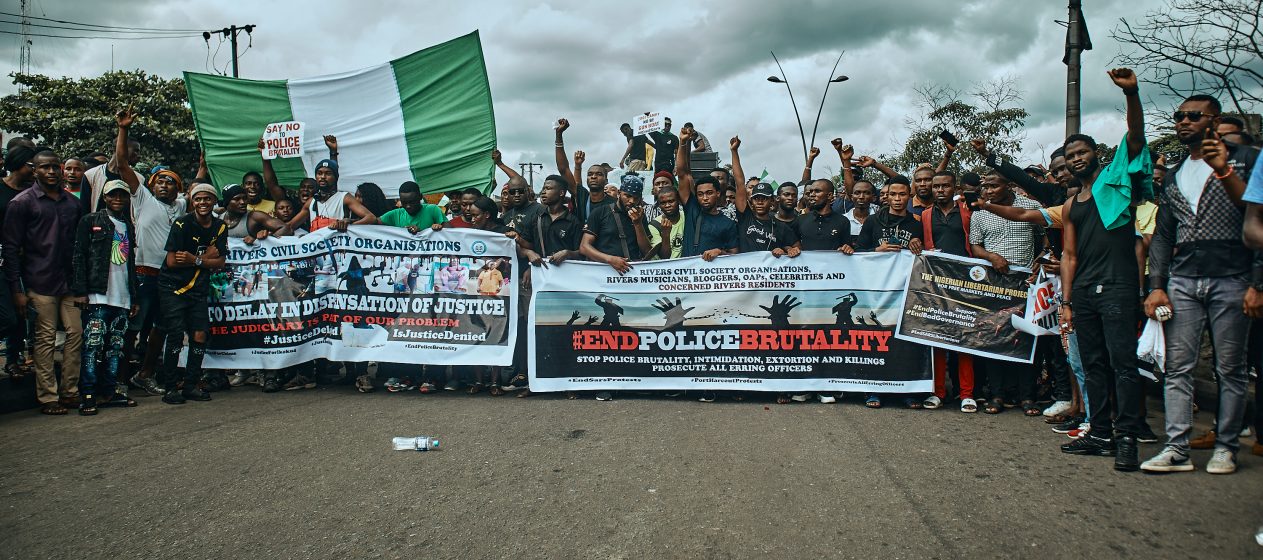A Pew Research Centre survey showed that citizens of 19 advanced economies consider social media simultaneously constructive and destructive in political life. A majority of citizens believe that social media has had a positive impact on democracy.
What about frontier economies? How has social media affected politics and political interaction in African countries with rapid population growth, increasing life expectancy, and widespread poverty?
Consider Nigeria.
In mid-2017, Nigeria was the most populous nation on the continent. By 2050, Nigeria will be the third most populous nation in the world.
This large population has increasingly adopted social media. There were approximately 33 million users in 2022, up from 18 million in 2017. Young people aged 18 to 34 make up the largest share of users. For them, using social media has significantly increased political interaction and participation. The extent to which it has led to sustained positive outcomes remains to be fully assessed.
In May 2018, Nigeria passed The Age Reduction Bill, aka Not Too Young To Run. The bill lowered the age limits for political office from 35 to 30 years in the Senate and 30 to 25 years in the House of Representatives and State House of Assembly. The successful passage was partly due to social media users who advocated for change using #NotTooYoungToRun on social media. Campaigns like #NotYooYoungToRun have successfully forced politicians and policymakers to adopt regulations that benefit them while rejecting those that do not. Another example of Nigerians using social media in this manner was in 2020 when the Nigerian Postal Service (NIPOST) decided to hike its licensing fees for operators of courier services in the country. #EndNIPOSTExtortion trended on social media forcing a reversal of the hike. For Nigerian social media users, platforms like Facebook, Twitter and WhatsApp have proved effective ways to participate in politics.
While these are examples of social media successfully driving positive political and policy outcomes, there have been instances where social media use has not led to long-term real-life change. In some cases, the government has undermined social media use to the detriment of positive outcomes.
When footage of the Special Anti-Robbery Squad (SARS) in Delta State allegedly killing a man went viral on social media in 2020, Nigerians were enraged. They took to the streets to protest and demand political reforms. #EndSARS trended globally and drew attention to Nigeria’s failing political leaders. There is still significant debate about whether the #EndSARS movement has been/is successful. The initial demand was the abolishment of SARS which the government claims it did. The demands eventually evolved into calls for broader and more systemic reforms of the social, political and economic issues primarily affecting Nigeria’s youth. As of 2022, not all of these demands have been met. If the goal was global awareness of the plight of Nigerians, then success was achieved as the global community joined the call to action. If the goal was structural policing and societal reform, success remains to be had. Even though SARS is no longer in operation, police brutality persists.
The Age Reduction Bill has seen more young Nigerians run for office and register for electoral participation. In the 2023 presidential elections, young people comprised approximately 76% of newly registered voters. This increased youth participation has stemmed mainly from dissatisfaction with the status quo, constantly voiced on social media. During the 2023 elections, the emergence of the Labour Party and its leader Peter Obi galvanised social media activists and led to several political marches across the country. Nigeria’s established political elite initially derided Obi’s rise, claiming that his campaign and growing popularity were based on four people tweeting in a room.
On election day, it was clear that social media commentary had translated into real-world action. While he was not declared the winner, he received 6.1 million votes—a significant amount for a candidate outside of the usually dominant two parties. The election results are now being contested in court, and Obi has told his supporters he will prove that he was robbed of victory. International watchers have claimed that law and electoral administration failings prevented free and fair elections. The EU’s Election Observation Mission found that “the election exposed enduring systemic weaknesses.” Systemic issues in the Nigerian political system continue to affect how social media can create long-term real-life change.
Beyond systemic issues, bans have also impeded how social media use can drive long-term change. In 2021, the Nigerian Government suspended access to Twitter following the temporary freezing of the president’s account because of a post that the social media giant claimed violated its “abusive behaviour” policy. The administration of President Buhari claimed that Twitter was working against Nigeria’s interests and that the unscrupulous were using the platform to spread misinformation and criminal activities. While the ban did not entirely stop usage in the country because Nigerians simply downloaded Virtual Private Networks (VPNs), it lasted seven months and cost the economy approximately $26.1bn (N10.72trillion).
As social media penetration continues, it will continue to be a tool for analysing and discussing politics. However, the extent to which it affects politics and policymaking in a nation as diverse as Nigeria will be a complex and evolving phenomenon which must be closely monitored. Social media platforms have allowed Nigerian citizens to participate in political discussions and engage with policymakers actively. The opportunity and ability to translate online commentary into sustained long-term change will depend on the systems and administrative practices in place.







